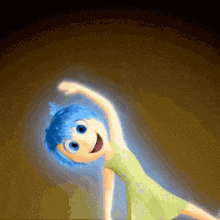Horror, is one particular genre that brings us the adrenaline rush to our couches, presented to us through a 2-dimensional, one-sided window. Letting us dive into the fictional world of a film director's brainchild. The Conjuring series, Annabelle, The Evil Dead, and of course, The Exorcist are must-watches during the Halloween season. Goosebumps, paranoia of a shadow behind the curtains, and sprinting to our rooms after switching off the main lights are all universal experiences after we watch a horror movie.
Most movies typical of this genre, horror in other films is more like the shrill burning of one's skin after it's been slapped and scares you with tangible and physical fears. But what if there exists one that feels more like the sticky and icky feeling that is left over after touching honey or glue that refuses to go away even after wiping it?
A film that managed to disturb an entire theater audience into having a therapist ready at hand. Well, regardless of whether you are someone who is willing to watch this film and want to know more or someone who would opt out and is just curious about what got over 80 people so spooked, this article will help you regardless.
When the psychology of grief and cultism, the fear of the unknown, and a masterclass of cinematography and acting all come into a room to make a film, we are gifted with—Hereditary.
MINOR SPOILERS ONLY- The plot twist and ending of the film will not be discussed in this article

Image Credit: JP Fariax from Pexels
Summary and Overarching Themes
With a Rotten Tomatoes rating of 90%, Hereditary made its first screening debut at the Sundance Film Festival in 2018. The psychological horror was the wolf among the sheep in the horror genre at the time, opting out of the saturated nature of jumpscares, CGI, and the paranormal.
Hereditary is a 2018 American psychological horror film written and directed by Ari Aster in his feature directorial debut, with a run time of 2 hours and 30 minutes.
When her mentally ill mother passes away, Annie (Toni Collette), her husband (Gabriel Byrne), son Peter (Alex Wolff), and daughter Charlie (Milly Shapiro) all mourn her loss. The family turn to different means to handle their grief, including Annie and her daughter both flirting with the supernatural. They each begin to have disturbing, otherworldly experiences linked to the sinister secrets and emotional trauma that have been passed through the generations of their family.
IMDb Plot Summary
It explores familiar themes like grief and mental illness and plunges into the tangible human fear of feeling unfamiliar in the most familiar setting. The film is primarily directed in a Hitchcockian, covert manner, with its central emotions being guilt, uncertainty, and anxiety. Instead of presenting the supernatural aspect openly, it subtly lurks into the view over a long period of time, and its identity almost comes as a shock despite being there all along.
The film begins with an abrupt urgency. The constant filming of scenes as if they were miniatures, plus the miniatures blending into the shots, gives the idea that this is all a stage and is a tragedy that the audience watches being played out while the characters can do nothing about it.

Image Credit: Joy Marino from Pexels
One of arguably the BEST parts in the film is also almost at the end of the run. Peter, after running from his possessed mother, locks himself into the attic. With the score picking up—in pace and volume—Peter is wailing for his mother to stop, paired with loud and persistent banging on the other side of the attic door from below.
As he looks down and continues sobbing, this horizontal shot immediately cuts to an almost parallel horizontal shot of Annie sticking up to the wall and violently banging at the door—not with her hands, but with her head. This scene is what originally compelled me to watch this movie and still gives me chills because of how well executed it was.
Cinema and Sound: When Nothing can do Everything
From the very beginning of the film, Charlie is always accompanied by some sort of clicking sound, whether it is her clicking her tongue, the toys and trinkets she is always tweaking with, or the actual score playing in the background. Although this holds significance and will be revealed at the end of the film, the characterization with just mere sounds was brilliant film direction.
And with the final moments of Charlie, at the precipice of the movie, the anonymous clicks gradually increase as she peeks her head out the window to breathe while Peter speeds down the empty roads. And the ascending score falls to stop with a final click—the sound of Charlie's neck snapping in two by a roadside pole.
Multiple of the more emotional plays in the movie are made by very clever editing. When Steve, who finally snaps and allows himself to break down into tears after all the disturbing events that weigh him down.
The film allows him only 3 seconds before he is cut off, and we cut to him driving into the house garage as if the characters aren't allowed to be vulnerable or mourn. Just as how, during the first few minutes of the film, the kiss that Steve and Annie share before going to bed is cut short to move to the next scene, as if the characters aren't allowed the comfort and affection either.

Image Credit: Ron Lach from Pexels
The last 15 minutes of the movie were fantastic. Exploring the hidden meanings, Easter eggs, and analyzing them all would honestly require a separate article in itself in order to do them justice, and is rather worth watching independently.
The final minutes of the movie now consist of warm yet bright yellow lighting and a loud score akin to triumphant music—trumpets, bells, and synths gradually ascend in volume. In complete contrast to the low, spacey synths that are heard throughout the movie. We close out with a wide shot of the attic filmed once again like a miniature, with a now crowned Peter standing in the middle of a circle of bowing naked people. The scene appears like a stage, and it continues the thematic idea of all this being a tragedy that none of the characters could escape from.
Conclusion:
The best way to understand the theme of this movie is to observe the entire class interaction that occurs in the first 20 minutes of the film. They discuss Sophocles' play and Hercules' inautonomy rooted in his arrogance and ignorance. "Sophocles wrote the oracle so that it was unconditional, meaning Heracles never had a choice." He ignored all the signs that were handed to him throughout the play and thought he had control.
This heavily parallels our own characters. The entire fate of this family was already written by the cult and the grandmother, and unaware of all the signs and foreshadowing, the family, thinking they were free and in control, were doomed to a fate written not by their own hands, and we as the audience watch this tragedy play out, knowing that there is no way for the characters to escape this doomed fate.
Another point to make note of is how, even during this interaction, which CLEARLY foreshadows the entire plot, our main character Peter isn't paying attention and, like Heracles, is ignorant to the telling of his fate.
"I think it's more tragic, because it's inevitable and the characters are hopeless...they're hopeless in this horrible hopeless machine"










.jpg)


